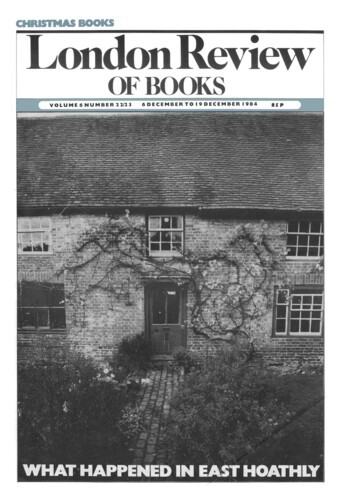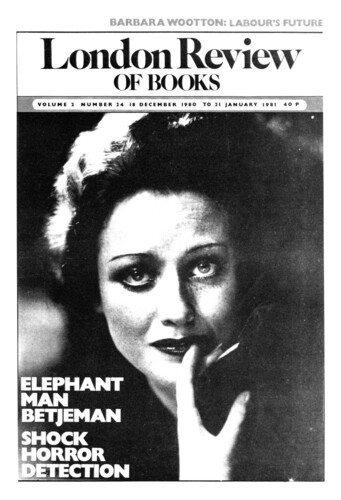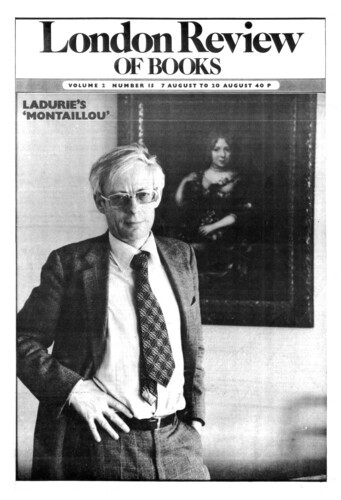At the Hydropathic
T.J. Binyon, 6 December 1984
At first sight Janet Morgan does not seem the obvious person to choose as the official biographer of Agatha Christie. She describes herself on the jacket of the book as a ‘writer and consultant’, who now ‘advises governments, companies and other organisations on long-range strategic planning, new technology and different approaches to whatever they find themselves doing’. She has written on politics and broadcasting and was, of course, the editor of the four-volume edition of Crossman’s diaries. All this is a world away from M. Poirot or Miss Marple, and internal evidence suggests, too, that she has no particular knowledge of, or liking for, the detective story. But on the whole this is a solid and sensible life – if sometimes annoyingly vague on detail and dates – which complements and expands Agatha Christie’s posthumously published autobiography. It is also annoying that it should not contain a chronological list of her work: that one is available elsewhere is no excuse for the omission. But the biography certainly fulfils what was presumably the family’s main aim: it lays, once and for all, the malicious rumours and vulgar gossip put about by other writers on the subject of Agatha Christie’s ten days’ disappearance in 1926, providing an authoritative, as well as authorised, explanation for the event.’



